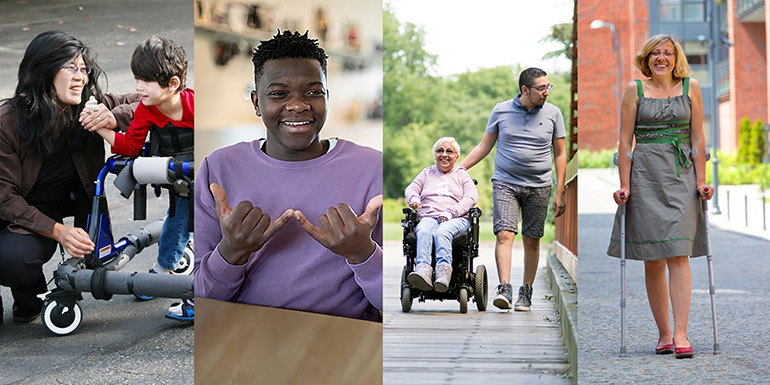
The COVID-19 Disability Survey captured perspectives from Canadians with different types of disabilities and their family members.
Nearly 30 per cent of those polled are hesitant to get vaccinated
A new study led by UBC researchers and the Ontario-based Abilities Centre is sounding the alarm over the damaging effects of COVID-19 for Canadians with disabilities.
Dr. Kathleen Martin Ginis, director of the Centre for Chronic Disease Prevention and Management, points to public health restrictions and lack of community resources as key contributors to heightened challenges facing those living with disabilities.
"Limited social support, reduced access to recreational space and financial uncertainties have exacerbated the current situation," says Martin Ginis, a professor at UBC Okanagan. "As the pandemic continues to draw on, we need to prevent more individuals from slipping further through the cracks."
The COVID-19 Disability Survey targeted Canadians who identify as having a disability - such as a physical, cognitive or sensory disability - or having a child or family member living with a disability in their household. The survey collected responses from across Canada and with representation from most provinces and territories.
Of those surveyed, 82 per cent reported that the pandemic is negatively impacting their mental health. Individuals reported unmet needs for emotional counselling, recreation and leisure programs, income support, specialized health care, accessible housing and transportation.
A majority of people reported decreased physical activity, less healthy lifestyles and significant social isolation. For children with disabilities, more than half of parents reported their child experiencing decreased physical activities as a result of public health restrictions.
"Another key finding was that only 72 per cent of Canadians with disabilities planned to get a COVID-19 vaccine," says Stuart McReynolds, president and chief executive officer with the Abilities Centre. "We need to help boost vaccine confidence for all individuals, so we can collectively put this public health crisis behind us."
The COVID-19 Disability Survey data has already contributed to positive policy changes such as the Ontario Government's amendment for people with disabilities to have access to physical therapy programs and by providing guidance around how to ensure that vaccination sites are fully accessible.
"This survey provides a snapshot of the negative impact of the pandemic and COVID-19 restrictions on the well-being of Canadians with disabilities," adds Martin Ginis. "We strongly urge governments and community agencies to work quickly to address service gaps and mitigate further negative mental and physical health impacts."
The full report can be viewed at: abilitiescentre.org/Abilities/media/Documents/Covid-survey-report
About UBC's Okanagan campus
UBC's Okanagan campus is an innovative hub for research and learning founded in 2005 in partnership with local Indigenous peoples, the Syilx Okanagan Nation, in whose territory the campus resides. As part of UBC-ranked among the world's top 20 public universities-the Okanagan campus combines a globally recognized UBC education with a tight-knit and entrepreneurial community that welcomes students and faculty from around the world in British Columbia's stunning Okanagan Valley.






